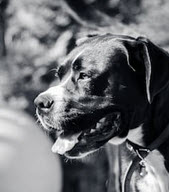Florida Breed Specific Laws Dog Bite Victims Should Be Aware Of

When it comes to owning a canine in the U.S., there are relatively few restrictions, as most dogs are considered to be “friendly” given the right training. However, one breed in particular is rarely given the benefit of the doubt, and that is the pit bull. Pit bulls, no matter how cute and cuddly breed loyalists claim they are, have innate aggressive tendencies. Unfortunately, it can be difficult for even a bull’s owner to know when said tendencies might surface and, if and when they do, how much damage the dog can inflict. For this reason, several counties across the U.S. have banned ownership of pit bulls out right, while others have enacted dangerous dog laws that create a heightened responsibility for owners of the pit. Miami-Dade and Broward County are two of those counties.
Miami’s Stance on Pit Bulls
Under Miami-Dade County ordinance, Chapter 5, Sec. 5-17, it is illegal for residents to own or keep an American Pit Bull, American Staffordshire Terrier, Staffordshire Bull Terriers, or any other dog whose characteristics closely resemble those of the pit bull breed. The ordinance, which was enacted in 1989 but upheld by voters in 2012, recommends that anyone who knows of a person harboring a pit bull or other aggressive dog breed to contact local animal control services or the local authorities. Tips can be submitted anonymously by phone, email, or the postal service.
Broward County’s Dangerous Dog Rule
While section 4-2 of Broward County, Florida, Code of Ordinances does not single out pits in general, it does place a heightened responsibility on owners of dangerous dogs. According to the ordinance, a dog may be classified as “dangerous” if it approaches another person or animal in an aggressive manner without provocation; if it has a history of attacking or killing another domestic animal without provocation; if it has a history of aggressively biting, attacking, endangering, or killing a human; or if it has been trained to fight. If a person does own a “dangerous dog,” he or she is required to do the following:
- Register the dog and obtain a dangerous dog license tag within 14 days of the classification being made;
- Renew the special license annually;
- Pay for an approved microchip to be implanted in the dog for easy tracking;
- Display warning signs on his or her property in an area that is easily readable by the public;
- Create and maintain a proper enclosure for the dangerous dog for when it is outdoors;
- Muzzle and leash the dog when not indoors or in the enclosure; and
- If the dog is sold or given away, to notify authorities of the new owner’s name, address, and telephone number.
Dogs Need Not Be Classified as “Dangerous” for Victims to Have a Dog Bite Claim
If you were bit by a dangerous dog, your chances of recovering compensation for your injuries increase exponentially. That said, Florida law abides by a one-bite rule, meaning that you can pursue damages from the owner regardless of whether or not the owner was aware of the dog’s aggressive tendencies. If you or a loved one was severely injured by a canine, contact the Tampa dog bite lawyers at Barbas, Nuñez, Sanders, Butler & Hovsepian to discuss your case and options for recovery today.
Resources:
library.municode.com/fl/miami_-_dade_county/codes/code_of_ordinances?nodeId=PTIIICOOR_CH5ANFO_S5-17LEIN
library.municode.com/fl/broward_county/codes/code_of_ordinances?nodeId=PTIICOOR_CH4DOCA_S4-12DADOCLPRREOWREPE




